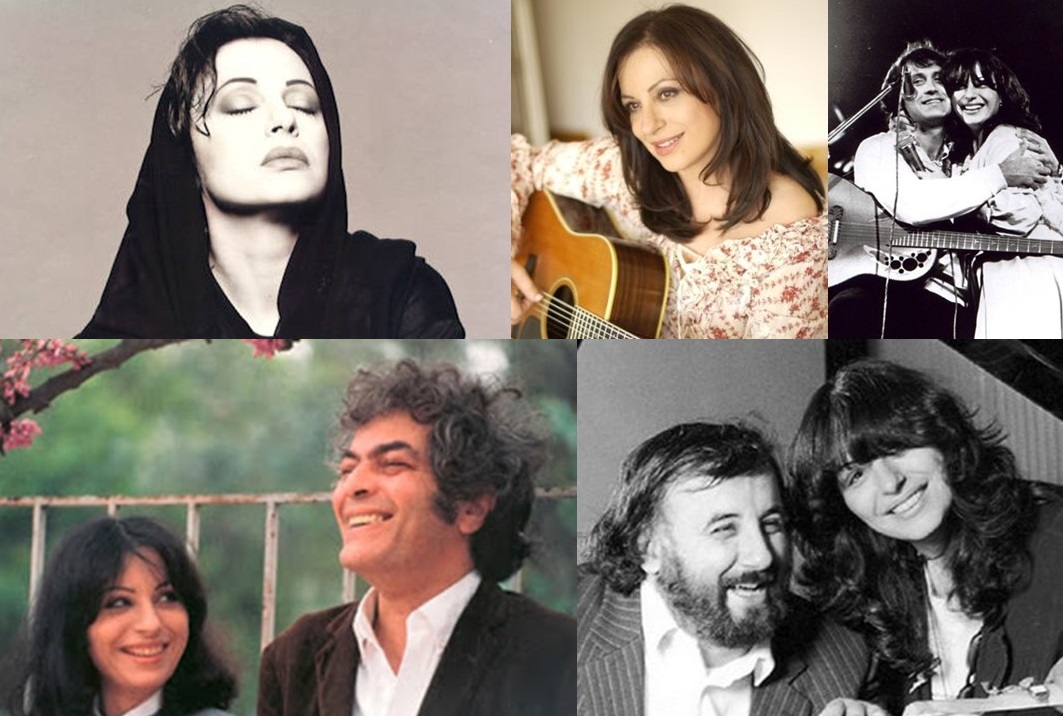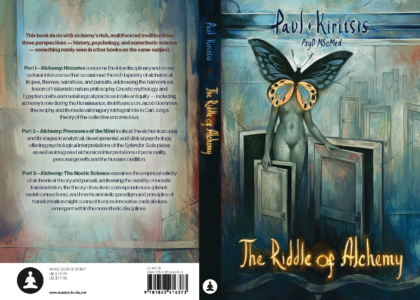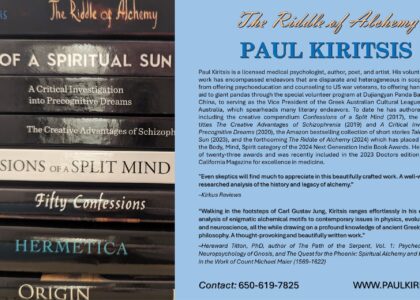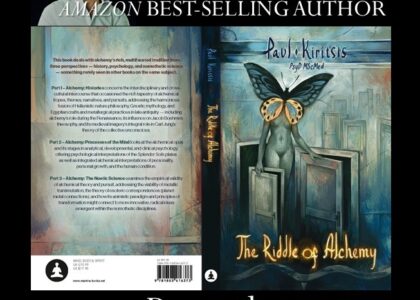
Haris Alexiou (real name Hariklia Roupaka) is, without a doubt, a unique phenomenon in our culture, one of those trend-setting, paradigm-shattering, larger-than-life, macro-scale, explosive, commercially successful artists brimming with an unbridled, inexhaustible fountainhead of creative potential that comes around about once every century. She is indivisible from the multifaceted Hellenic culture which nurtured her, and this is so because she is recognized by first name alone–Haroula… Her reputation precedes her; even the rocks of obsidian on Milos and Santorini know who she is. Her greatest gift? That mellifluous voice from the empyrean of God, a voice of an enchanting muse able to enchant and bedazzle, to elicit powerful sentiments and emotions, and to drive you over a precipice and into a transient chasm of wistful longing, ecstasy, and yes, excruciating emotional pain. Yes, she wields that power. Her raw vocal prowess bequeathed latitudes in a professional capacity, stylistic latitudes that many of her contemporaneous colleagues covetously strive for and aspire to attain. A most compelling fact is that she was never beholden to one musical style and demonstrated unprecedented versatility by releasing over 30 studio recorded albums that are fairly disparate and heterogenous in terms of genre–everything from traditional to contemporary/modern, pop to rock, and rebetiko to jazz. She has collaborated with all the greatest Greek musical composers of our time–Mikis Theodorakis, Manos Hatzidakis, Manos Louizos, Andonis Vardis, Christos Nikolopoulos, Thanos Mikroutsikos, Takis Soukas, Yiannis Spanos, Nikos Andipas, to name but a few. She is also an incredibly talented songwriter, having written all the lyrics and musical compositions for two of her own studio albums (the incredible Odos Nefelis ’88 and To Pexnidi tis Agapis). She has performed in some of the world’s largest stadiums and has been recognized with innumerable national and international honors/accolades for her personal contributions to world music. Not surprisingly, she is the bestselling Greek female artist of all time. Her list of achievements is as long as the River Nile, if not longer. If her musical career were a star it would be a supernova dancing to Pythagoras’ music of the spheres. Blessed is an appropriate epithet for her. She is a cultural icon, a national treasure, her name synonymous with music itself. Several days ago, she announced her official retirement from the music scene, ending an illustrious, coveted career that spans half a century (1970-2020).
In her recent press conference, she intimates that a constriction in the tonal range of her voice and an attenuation of vocal control is what precipitated the decision to retire. “I can’t sing like I used to,” she said wistfully. “My voice no longer listens to me and I said it’s better to stop.” For me personally, her words were a deafening reverberation of the existential dread we all feel as we age and of the disquieting feelings triggered by thoughts of attrition, entropy, a world that moves thermodynamically downwards, and the finality of death. The self grasps desperately onto the delusion of immutability despite the overwhelming evidence in support of the impermanence of everything. Father Time snatches everything from us–our youthful appearance, our singing voices, our intellect, and sometimes even our personal memories (i.e., in the case of neurodegenerative diseases). However, its not all doom and gloom. It’s now widely accepted that degeneration of some cortical regions can sometimes spur novel creative urges (i.e., drawing, painting, sculpting, creative writing). Exploring the paradoxical emergence of creative impulses or skills when we experience some kind of objective decline in an already established and cultivated skill set can dispel some exasperation pertaining to the existential loss and augment subjective feelings of wellbeing. It may encourage us to nurture and develop other skills and talents which are hitherto underdeveloped because they had been eclipsed and overshadowed for so long by this other majestic and prodigious gift (i.e., the power of voice in Haroula’s case).
On the other hand, isn’t it fascinating and extraordinary how the trajectory and the ebbs and flows of such a gargantuan career may be so deeply entwined and enmeshed with our own lives? Her music has been omnipresent in my life and has nourished me in a creative capacity. I remember my paternal grandmother telling me how I became enamored of the song “O Fandaros” in my youth and would sing it unrelentingly. I remember my mother swiftly turning up the volume on the radio each time a signature song by Haroula came on. I remember my music teacher asking me who my musical idol was, and me automatically blurting out “Haroula.” I remember how the ballad “Ola se Thimizoun” manipulated strings of my heart when I first heard it. I remember the solace, companionship, and spiritual buoyancy afforded by her mesmerizing voice each time I suffered a lamentable and traumatic event in my teenage years. I vividly remember frenetic excitement when my father brought home several music books encompassing some of her signature pieces, the process of diligently learning and perfecting them on the electronic keyboards, and my burgeoning pride after performing them live for relatives and friends who visited during festive seasons. I remember the clouds of inspiration I was launched into after reading some of her lyrics. I remember convening with my beloved cousin Harry each time she released a new album so we could appraise and discuss the content; the rambunctious festivals and karaoke nights at Harry’s house which always included a selection of her signature songs; and the quivering anticipation of a musical odyssey connected with seeing a live performance in 2011. These indelible marks are impressed and deeply entrenched in the recesses of my untethered soul. Haroula, you are an indivisible part of me…
Thank you for your invaluable contributions to Greek music and world culture.
Love and respect,
Apostolos Kiritsis








